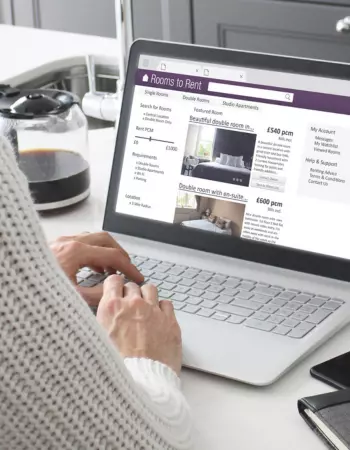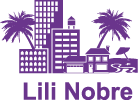Alojamento Local in Portugal
Many Portuguese people find temporary accommodation in the local accommodation (a temporary lease of real estate to tourists) a way to obtain extra income. Although it can be profitable, this activity is complex and involves numerous obligations.
House, apartment, room or hostel. Regardless of the modality, this activity has its own rules, which are different from the traditional lease and tourism enterprises. As per the legislation, local accommodation establishments are characterized as “those providing temporary accommodation to tourists for remuneration” and who meet the requirements of the law. Here are nine essential steps to having a local accommodation.
1. Perform prior communication with deadline
Registration of local accommodation establishments is carried out by means of a prior communication with a deadline addressed to the competent Mayor of the City. This registration is done exclusively at the Single Electronic Desk. After this mandatory procedure, a registration number will be assigned – within 20 days in the case of hostels and 10 days in other cases – that should be used in advertising and commercial documentation of the establishment. This is the valid title of opening the establishment to the public.
The prior notice with deadline must contain the following information:
- The authorization of use or valid title of use of the property;
- Identification of the operator of the establishment, with the name or company name and the tax identification number;
- Address of the operator of the establishment;
- Name adopted by the establishment and its address;
- Capacity (rooms, beds and users) of the establishment;
- Name, address and telephone number of person to contact in case of emergency.
It must also be accompanied by the following documents:
- Simple copy of the identification document of the operator of the establishment (if it is a natural person) or indication of the access code to the permanent certificate of the commercial register (if it is a legal person);
- Term of responsibility, subscribed by the owner of the operation of the establishment, ensuring the suitability of the building or its autonomous fraction for the provision of accommodation services and complying with applicable legal and regulatory standards;
- Simple copy of the urban land register in case the applicant is the owner of the property;
- Simple copy of the lease or other title that legitimates the holder of the holding to the exercise of the activity;
- Simple copy of the declaration of commencement or change of activity of the holder of the holding;
- Minutes of the assembly of condominium owners authorizing the installation, in the case of hostels;
- The modality of establishment in which the activity of local accommodation (dwelling, apartment, room or hostel) will be developed.

Find out that 30 days after the submission of the prior notice with deadline, the city council conducts a survey to verify compliance with the requirements.
2. Open Activity
The income obtained through local accommodation is taxed under category B (business and professional income). But since 2017, you can also choose category F (property income).
If you choose category B, you must start activity in Finance, with CAE 55201 (furnished accommodation for tourists) or 55204 (other short-stay accommodation). When you start the activity, you have to opt for the tax regime. If the income obtained does not exceed EUR 200 000, it falls within the simplified scheme and may opt for the organized accounting system. The latter shall become compulsory where annual income exceeds EUR 200 000.
If you choose category B, you must start activity in Finance, with CAE 55201 (furnished accommodation for tourists) or 55204 (other short-stay accommodation). When you start the activity, you have to opt for the tax regime. If the income obtained does not exceed EUR 200 000, it falls within the simplified scheme and may opt for the organized accounting system. The latter shall become compulsory where annual income exceeds EUR 200 000.
If you prefer to be taxed by category F, you can cover all income (the tax to be applied on the whole being determined) or tax the property income at the rate of 28%.
3. Meet the general requirements of local accommodation
Local accommodation establishments must comply with certain requirements, provided by law:
- Present conditions of conservation and operation of facilities and equipment;
- Are connected to the public water supply and sewage system;
- Have hot and cold running water;
- Have a window or balcony with direct communication to the outside;
-
They are equipped with adequate furniture, equipment and utensils;
Have a system that allows the external light to be blocked; - Have doors equipped with a security system that ensures the privacy of the users;
- The sanitary facilities must have a security system that guarantees privacy;
- Always meet hygiene and cleaning conditions.
4. Pay attention to security requirements
In addition to the general requirements, local accommodation establishments must comply with fire safety rules, in accordance with the applicable legislation (Decree-Law no. 220/2008 and Ordinance no. 1532/2008). However, if local accommodation has a capacity of less than 10 people, the legislation defines simpler rules. These properties must have:
- Fire extinguisher and blanket accessible to users;
- First-aid equipment accessible to users;
- Indication of the national emergency number (112) in a place visible to users.
5. Possess a book of complaints
All local accommodation establishments must have a complaint book (duly announced) and provide it whenever the user asks for it, says article 20 of Law 62/2018, of August 22. The holder of the holding must maintain, for a period of at least three years, an organized archive of the complaint books. The book costs 19.76 euros and can be purchased online, through the website of the National Press – Casa da Moeda or in the physical stores.
6. Have an information book in several languages
In the local accommodation, an information book with instructions on the operation of the establishment and its internal rules of use (collection and selection of municipal waste, household appliances, noise and care to avoid disruptive tranquility and the rest of the neighbors to the neighborhood. In addition, this document must contain the telephone contact of the person in charge of the operation of the establishment.
The information book must be made available in Portuguese and English and in at least two other foreign languages.
7. Hire compulsory civil liability insurance
Those who explore a local accommodation are jointly and severally liable with the guests for damages caused by them in the building where the unit is installed. Therefore, the law requires the contracting of a multi-risk insurance of civil liability that covers risks of fire and property damage and non-property damage caused to guests and third parties, arising from the activity of providing accommodation services. If there is no valid insurance, registration is canceled.
8. Communicate the entry and exit of foreigners to the SEF
If you intend to open a local accommodation, you must register with the SEF (Foreigners and Borders Services) and communicate the entry and exit of all guests with non-Portuguese nationality (article 14 of Law no. 23/2007). To do this, you must complete the accommodation bulletin within three working days of the date of entry. It is also obligatory to communicate the exit of the same, within a maximum of three working days. Learn more about this procedure here.
9. Understanding tax obligations
Exploring local accommodation involves some tax obligations, such as:
- Issue invoice-receipt (better known as green electronic receipts) through the Finance Portal or pass invoices. If you choose invoices, you can use a computer program (certified by the Tax Authority) or print the invoices in a certified letterpress. In the latter case, you must present the receipts issued in the previous month to the Finances, by the 25th of each month, using the SAF-T model;
- Pay the VAT, through the periodic declaration of VAT. Anyone who has income of up to EUR 10 000 in the previous year is exempt from this tax;
- Deliver Model 30 (Income paid to non-residents). This obligation has to be fulfilled if, for example, you have an advertisement of the property on an international site, such as Airbnb or Booking, and pay commissions. You must submit this form in Finance until the second month after payment of the income to the foreign website;
- If you place ads on an international website, you still have to ask the company to send you the model 21-RFI (request for total or partial withholding of Portuguese tax under the double taxation agreement). Otherwise, you must withhold 25% of the amount paid in commissions;
- Before starting a local accommodation activity, it is advisable to consult a specialist prosecutor in this matter.
Note: This article already contemplates the new rules of local accommodation, which were published in Diário da República on August 22, 2018.
